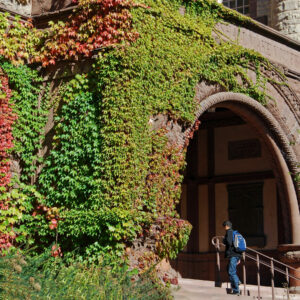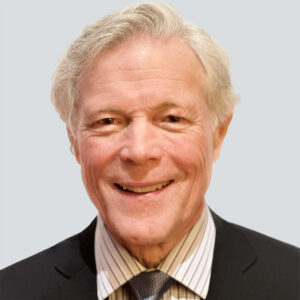During my time at Deerfield Academy, the administration systematically and intentionally examined and strived to improve all aspects of academic and student life. In this challenging work, we faced many obstacles, but chief among them was faculty resistance to change: Wouldn’t change take faculty time and attention away from our students? Doesn’t change imply imply we’ve been doing things wrong? Why would we change a 200-year-old school that is successful by virtually any measure? In responding to these concerns, I found the Trustees an invaluable ally.
Faculty understood that the Trustees were ultimately responsible for the school’s direction. Hence, if the Trustees were known to want programmatic change, then faculty understood it would happen. And yet Trustees were not immune from faculty mistrust: What do Trustees know about education and school culture? Do they understand the teacher perspective? Will their business mindset impose a profane element to the sacred work of educating young people? Faculty simply felt that the Trustees’ “business based” perspective was too distant from the realities of school life.
In contrast, those of us in the administration welcomed the infusion of ideas and practices from the business world. When the Trustees emphasized that we needed to be more customer-oriented, it mirrored our belief that we needed to become more student-centered. The business concept of customer lifecycle helped us link the student experience from admissions to college counseling to alumni development. The business commitment to continuous improvement echoed our own emphasis on evaluation and professional development for faculty. As administrators, we were deeply grateful for Trustees’ affirmation, support, and guidance, and we deeply regretted their being mistrusted by faculty. What to do?
Developing Shared Perspectives
We turned a corner when the Board incorporated alumni and educators and into the committees they devoted to academic and student life. Faculty felt comfortable that their former students and fellow educators understood student and faculty culture—and they were confident that these new committee members could guide the board toward greater insight. With the guidance of these new committee members, the Trustees invited more experts and consultants to report to them on educational trends, and they began to ask great questions about how the school’s program was moving forward. Suddenly, board efforts to provide guidance on the student experience were given credibility and weight.
What happened next was transformative. No longer perceived as remote, alien, and threatening, Trustees were invited to shadow faculty and learn more about the school—and faculty were increasingly invited to attend Trustee gatherings. For Trustees to spend their valuable time learning about how education works within the school spoke volumes in both the language and currency of teachers. And once faculty began to trust and feel the support of trustees, they gained a healthier perspective on the prospect of change.
The unique perspective of Trustees, alloyed with the insider knowledge of educators and alumni, became a powerful force for school improvement. Mutual respect and appreciation began to flow in all directions. Mistrust melted away, the culture became more positive and collaborative. The school advanced—quickly.

Trustee Committees on Student Experience
—by David Thiel
Boards should “govern, not operate” schools— but some are so dedicated to this separation of duties that that they eschew committees devoted to student programs. At Aptonym, we think that’s a mistake.
The mission of a school is delivered through its programs. The student experience is the life’s blood of school culture and morale, branding and marketing, admissions and college acceptance, alumni success and future giving. When Trustee committees acknowledge the centrality of the student experience, they send a powerful message about what’s important.
The only caution? Most Trustees are recruited for the knowledge they already possess— but any discussion of student programs requires a lot of listening and learning. Each school is a unique community of learners: teenagers are complex, and the pace of change in education is faster than ever. Trustees who orient to their duties through the lens of their own, long past, school experiences may promote out-of-date thinking that eliminates their credibility and relevance on the board and, ultimately, imperils the school’s ability to flourish.
 Peter Warsaw is a Senior Consultant with Aptonym. A lifelong progressive educator, Peter Warsaw is experienced in designing, facilitating, and managing school improvement. For more information or to connect, visit Peter’s LinkedIn Profile.
Peter Warsaw is a Senior Consultant with Aptonym. A lifelong progressive educator, Peter Warsaw is experienced in designing, facilitating, and managing school improvement. For more information or to connect, visit Peter’s LinkedIn Profile.
 David Thiel is a design, systems, and strategic thinker experienced in communications, branding, operations management, and organizational alignment. For more information or to connect, visit David’s LinkedIn Profile.
David Thiel is a design, systems, and strategic thinker experienced in communications, branding, operations management, and organizational alignment. For more information or to connect, visit David’s LinkedIn Profile.